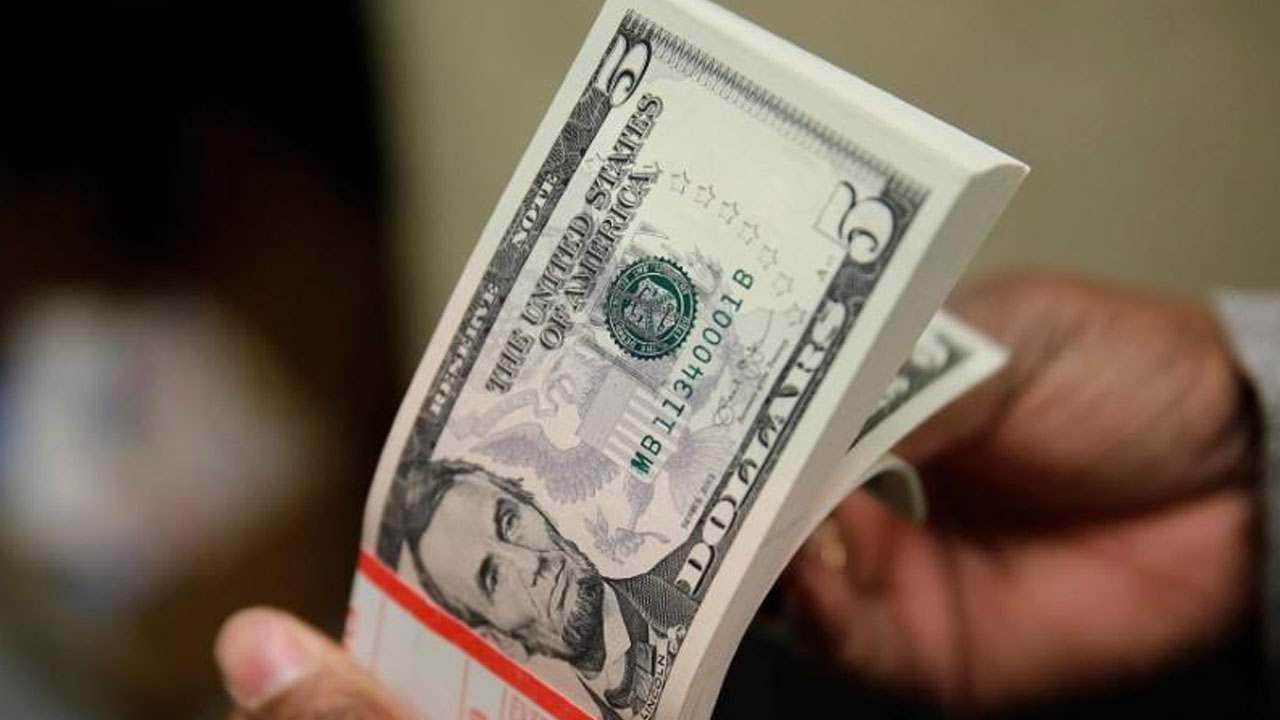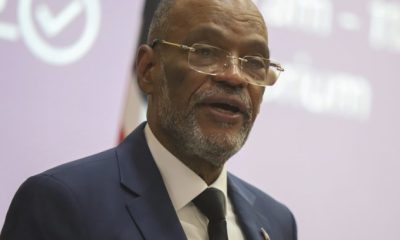General News
Tackling the dollar challenge — Opinion — The Guardian Nigeria News – Nigeria and World News

Nigerian investors continue to groan under the yoke of the dollar hegemony as the price of oil, the country’s main foreign exchange earner, plunged to $80 per barrel recently.
Data from the Organisation of Petroleum Exporting Countries (OPEC) World Rig Count on operational rigs in Nigeria as at August this year indicated that the number of functional oil rigs in the country shrunk from 11 to 10 in August due to alarming rate of crude oil theft.
With the Naira exchanging at over ₦700 to a dollar in our import-dependent economy, Nigerian investors have begun to seek opportunities to invest in foreign currency – denominated assets, one that has an underlying value in dollar terms in order to minimize their exposure to Naira devaluation . .
Investing in dollar-denominated assets entails purchasing foreign assets such as foreign stocks, dollar mutual funds, Eurobonds and dollar fixed deposits. These foreign assets have become a magnet to Nigerian investors. Since the fall of oil price, the country has been facing a significant price shock with weaker fiscal buffers than it had to soften the blow from past price slumps.
This has resulted in the current huge volatility in the country’s exchange rate which potentially presents two problems for investors. First, there’s the risk of lower real returns from investments in Naira-denominated assets as a weaker exchange rate should lead to higher inflation. Second, investments returns in dollar terms are potentially lower for those to whom the dollar value of their wealth is critical.
These highlight the value of diversifying into foreign currency denominated investments, hence the rush by Nigerians for them.
The hegemony of the United States dollar is based largely on the size and strength of the U.S. economy, and the dominance of the U.S. financial markets, which has strengthened its hegemonic status in the world. More than 65 countries peg their currencies to the U.S. dollar while five U.S. territories and eleven foreign nations use it as their official currency of exchange. The problem created by the dollars dominance is that the global economy is highly susceptible to swings in the U.S. monetary policy.
The truth is that developing nations and emerging market economies like Nigeria cannot easily absorb inflation shocks. In Africa which make up 3 percent of global GDP, and is predicted to grow six times by 2050, many countries given the current dollar yoke, will likely reconsider trading in dollar. They may likely resort to barter trade or trading in their own currencies over the dollar to grow their economies.
The Bank of Israel announced in April this year that it has added the currencies of Canada, Australia, Japan and China to its foreign exchange reserves which were previously limited to the US dollar, the British Pound and the Euro. The US dollars account for 61 percent of the country’s foreign reserve portfolio compared with 66.5% previously.
Egypt Central Bank has also maintained a diversified portfolio strategy by buying 44 metric tons of gold in the first quarter of this year, a 54 percent increase, the World Gold Council said. Other countries such as India and Iran are discussing the possibilities of using national currencies in their international trade.
With the world moving toward multipolarity, the geopolitical situation that arise when several power centers balance each other out in the global or regional international system, and with the U.S. no longer the world’s largest trading nation, the power status of the dollar could be waning as well.
The World Bank and other International Organisations have indicated that China alone contributes 30 percent of the world economic growth and has replaced the US as the biggest trading nation.
The dollar might just be witnessing its descent because expected future changes in China’s exchange rate regime could trigger a significant shift in the international monetary order. It is a matter of WHEN (not will) the US dollar lose its dominance among global currencies.
For self-serving reasons, the Chinese government would probably soon stop pegging its renminbi currency to a basket of currencies, and shift to a modern inflation – targeting regime under which they allow the exchange rate to fluctuate much more freely, especially against the dollar.
When that happens, says Kenneth Regoff, professor of Economics and Public Policy at Harvard University who was the Chief economist of the International Monetary Fund (IMF) from 2001 to 2003, “expect most of Asia to follow China. In due time, the dollar, currently the anchor currency for roughly two-thirds of world GDP, could lose nearly half its weight.”
Regoff affirmed that “Today, it seems to be an article of faith among US policy makers and many economists that the world’s appetite for dollar is virtually insatiable. But a modernization of China’s exchange rate arrangement could deal the dollar’s status a painful blow.”
For Nigeria to experience relief from the yoke of the dollar hegemony, it should reduce its dependence on the US dollar by diversifying in trade and finance, and by increasing the number of major trading partners and sources of financing and investment destinations.
Haruna wrote from Kano.
























